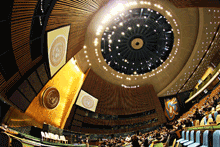
Building Trust in AI through Justice


Array
(
[thumbnail] => https://s42831.pcdn.co/wp-content/uploads/2022/09/hero-placeholder-150x150.png
[thumbnail-width] => 150
[thumbnail-height] => 150
[medium] => https://s42831.pcdn.co/wp-content/uploads/2022/09/hero-placeholder-300x129.png
[medium-width] => 300
[medium-height] => 129
[medium_large] => https://s42831.pcdn.co/wp-content/uploads/2022/09/hero-placeholder-768x329.png
[medium_large-width] => 768
[medium_large-height] => 329
[large] => https://s42831.pcdn.co/wp-content/uploads/2022/09/hero-placeholder-1024x439.png
[large-width] => 1024
[large-height] => 439
[1536x1536] => https://s42831.pcdn.co/wp-content/uploads/2022/09/hero-placeholder.png
[1536x1536-width] => 1400
[1536x1536-height] => 600
[2048x2048] => https://s42831.pcdn.co/wp-content/uploads/2022/09/hero-placeholder.png
[2048x2048-width] => 1400
[2048x2048-height] => 600
[gform-image-choice-sm] => https://s42831.pcdn.co/wp-content/uploads/2022/09/hero-placeholder.png
[gform-image-choice-sm-width] => 300
[gform-image-choice-sm-height] => 129
[gform-image-choice-md] => https://s42831.pcdn.co/wp-content/uploads/2022/09/hero-placeholder.png
[gform-image-choice-md-width] => 400
[gform-image-choice-md-height] => 171
[gform-image-choice-lg] => https://s42831.pcdn.co/wp-content/uploads/2022/09/hero-placeholder.png
[gform-image-choice-lg-width] => 600
[gform-image-choice-lg-height] => 257
)

In the coming month, CIC will release the next report in the What Happens Now? series, which will give a thorough analysis of the ongoing post-2015 negotiations, but in the meantime here is a sneak preview of the contents of that report based on initial reflections on the 2014 UN General Assembly.
Last month, during the 2014 United Nations General Assembly (UNGA), member states focused their remarks on the session’s theme, “Delivering on and Implementing a Transformative Post-2015 Development Agenda.” A large number of these remarks – ranging from monitoring and accountability to financing and the data revolution – revealed recurring themes. Below is a brief description of some of the topics that are currently on the table. A detailed analysis will follow in CIC’s soon-to-be-released What Happens Now? paper.
How the Open Working Group (OWG) outcome document was received:
Member states expressed divergent views on the path forward with the OWG outcome. While some were wary of reopening the “carefully crafted, balanced outcome”; others sought to further enhance it by reducing the number of goals and targets, giving greater attention to some issues such as human rights, peaceful societies, rule of law, access to justice, and gender equality, among other issues. With respect to the OWG outcome and overall framework to date, the G77, Brazil, India, and China agreed that the SDGs should not be reopened, and should form the core of the post-2015 development agenda.
Accountability is key:
The accountability and monitoring framework must be (1) comprehensive; (2) multi-layered; (3) multi-stakeholder; and (4) be incentive-based, with strong country ownership. India and South Africa, in particular, underscored the need for national sovereignty and the voluntary character of the evaluations in a monitoring framework.
Financing for Development (FFD):
The report of the Intergovernmental Committee of Experts on Sustainable Development Financing (ICESDF) made clear that public financing and donor aid will be central to support the implementation of the SDGs, but revenue generated from the private sector (through tax reforms and a crackdown on illicit financial flows and corruption) is equally vital. While the ICESDF report outlined a menu of policy options for financing sustainable development, perceptions among member states differed on whether the report “strikes the right balance” on the importance of different sources of financing. Some member states, including Brazil, noted that the report falls short of providing a strategy for financing the agenda, because it does not provide an integrated vision of how financing can best be mobilized.
The precise role of private finance and its prominence in the new agenda was a point of debate:
The need to recognize the separate and complementary nature of South-South cooperation, in relation to North-South cooperation, was also emphasized. Some member states, including South Africa, said it is troubling to see domestic resource mobilization elevated even in post-conflict countries and others where there is no capacity to generate domestic resources, with or without reforms to the tax regimes.
Common but differentiated responsibilities (CBDR) could remain a flashpoint for a large bloc of member states:
Malawi, Zimbabwe, Morocco, and Kuwait, among others, stressed that the means of implementation must be based on CBDR. They emphasized that (a) the post-2015 agenda should be common but differentiated enough so developing countries have flexibility in implementing domestic programs and (b) the SDGs must be informed by national development priorities with targets that reflect local conditions.
The role of data:
There’s a broad consensus on the need for a data revolution, data disaggregation, and viable indicators.
After the UNGA recently passed a resolution that adopted the OWG outcome document as the main basis for integrating the SDGs into the broader post-2015 framework, stakeholders keenly await the next major input – the UN Secretary General’s synthesis report. While the post-2015 process in its entirety is yet to be determined, we do know that the following milestones are on the horizon. We will revisit these events with a thorough description and analysis in our upcoming What Happens Now? report.
Publication Date:
Oct 22, 2014
Author(s):
Jeffrey Strew
Topic(s):
Post 2015 Development
Program(s):
Pathfinders for Peaceful, Just and Inclusive Societies


Subscribe to our newsletter and receive regular updates on our latest events, analysis, and resources.
"*" indicates required fields